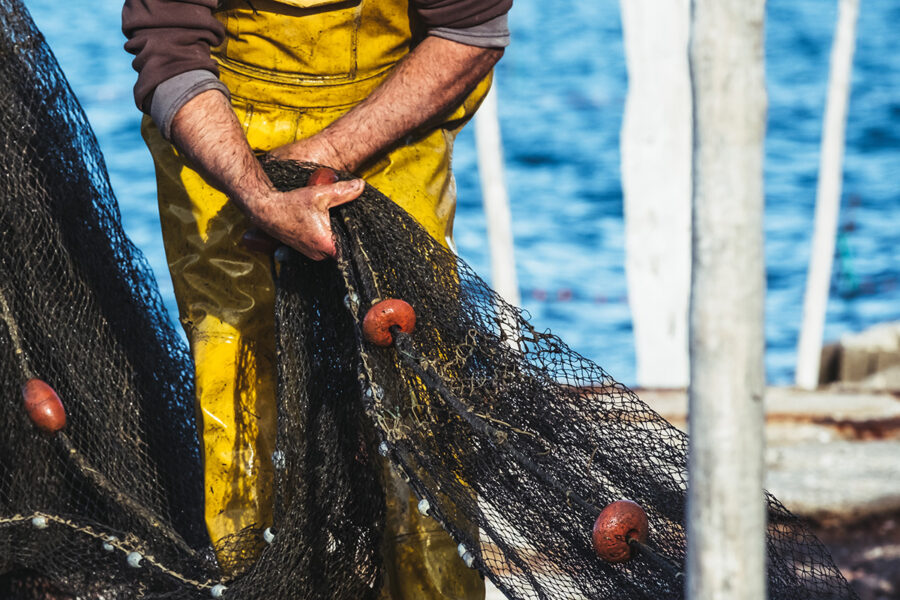SEA Alliance announces investigation focusing on NI industry following allegations made by Financial Times article
A welfare group representing foreign crewmen is mounting an ‘urgent’ investigation into the allegations of mistreatment that were made in a recent feature article in the Financial Times.
The article focused on Filipino crew in Northern Ireland, and included allegations that crew worked longer than permitted hours, and had to carry out work ashore beyond what should have been expected of them (Fishing News, 22 June, ‘FT feature highlights crew welfare’).
Seafood retailers and businesses have expressed concern about the allegations in the article, and more widely about crew welfare in the UK fishing industry.
The cross-industry group Seafood Ethics Action (SEA) Alliance, which works with a range of welfare organisations and companies to improve and support best practice for foreign crew working in the UK fleet, issued a statement after being contacted about the claims in the article by the Business and Human Rights Resource Centre.
It said retailers and seafood businesses are collaborating with SEA Alliance to respond to the ‘serious allegations’ made in the FT article, and wider concerns relating to worker welfare in the UK fishing sector.
“In relation to the issues raised in the FT Magazine specifically, we are working to ensure that a robust independent investigation into the allegations is completed as a matter of urgency, and we are in touch with fishing sector representatives in Kilkeel regarding the methodology and timeline for this,” said SEA Alliance.
“The SEA Alliance will be carefully reviewing the findings as soon as they are available and will support the sector to implement any improvement actions required.”
The Northern Ireland industry has disputed the characterisation of the industry in the FT article. FN approached Harry Wick, chief executive of the Northern Ireland FPO and a member
of the Fishermen’s Welfare Alliance, for comment on the SEA Alliance statement, but he said he had nothing to add to the comments he made when the FT article was first published (Fishing News, 22 June, ‘One-sided and selective: NI industry reacts to criticism’).
He said then that the FT article was selective in the material that was used. It was ‘narrative-building by omission’ and ‘chopped off bits of the truth that don’t help sell the story’. He said the industry
side of the story was not told, and there was no mention of Northern Ireland’s ‘pioneering Change on the Water project, aimed at driving up welfare standards and empowering crew grievance mechanisms’.
Harry Wick acknowledged that the industry should ‘scrutinise and shine a light, when things go wrong’. “Both health and safety and welfare are processes in which the industry should and does look for continuous improvement,” he said.
The Anglo North Irish FPO (ANIFPO), which according to the FT was named in the contract with the Filipino fishermen featured in the article, has said that it provided a statement to the FT disputing aspects of their accounts prior to publication – but that its comments were omitted from the published article.
FN also approached ANIFPO for comment on the SEA Alliance statement, but was told that chief executive Alan McCulla had retired at short notice the previous week, and no successor had yet been appointed.
After reports last year alleging mistreatment of foreign crew in the UK industry the SEA Alliance convened a Human Rights Allegation Engagement Group, which it says ‘has resulted in the creation of an action plan specifically focused on driving improvements in working standards and recruitment practices in UK fishing’.
The plan includes actions relating to supply chain mapping, advocacy to government, and working with welfare organisations to provide direct support to fishermen, it says.
It is also providing support to the International Transport Workers’ Federation (ITF) and international seafarers charity Stella Maris to ensure foreign fishermen in the UK are aware of their rights and are able to access support where they need it. It has created a series of information films for foreign crew in the UK fishing sector, which will be launched shortly.
“The SEA Alliance is also providing support to an industry-led initiative in Northern Ireland seeking to drive up safety standards through vessel assessments and capacity building for vessel owners,” said the alliance.
It is also working closely with fishing industry organisations to explore the feasibility of a Worker Driven Social Responsibility pilot in the Scottish fishing sector (Fishing News, 29 June, ‘SEA Alliance and industry meet to develop crewing proposals’).
“Notwithstanding the work outlined above, we recognise that there is more that can be done, and we are determined to use our collective and individual influence to support action to address the serious issues faced by migrant fishers working in the UK fishing sector. We will continue to update on the actions we are taking,” said SEA Alliance.








